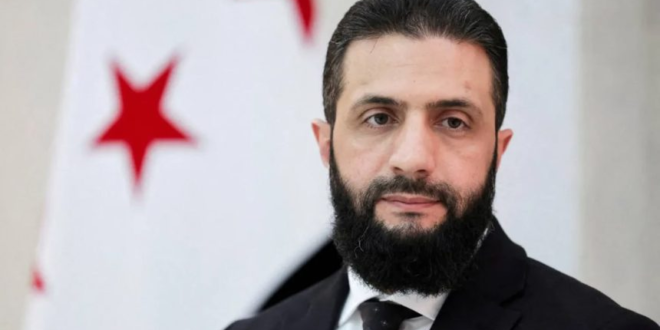Until now, speculation suggested that President Ahmad al-Sharaa might visit Saudi Arabia in mid-April. However, a statement issued Sunday by the Syrian Ministry of Foreign Affairs confirmed a different agenda: President Sharaa is set to embark on two key diplomatic visits next week, first to Turkey, followed by the United Arab Emirates. That said, a visit to Saudi Arabia remains likely—either immediately after the UAE or following a brief return to Damascus—depending on fast-evolving regional developments.
The ministry’s statement omitted specific details, such as the exact dates of travel or confirmation of a Saudi leg. Yet, observers see a potential visit to Riyadh as a natural extension of a broader Arab coordination effort, especially in light of escalating Israeli violations across Syrian territory and the widening scope of conflict. These conditions demand high-level coordination among leading Arab powers, with Saudi Arabia positioned at the heart of this dialogue.
The regional context further raises the stakes. The ongoing war in Gaza and its unpredictable consequences cast a heavy shadow over Syria’s own future. Syrians increasingly fear that looming regional settlements—negotiated behind closed doors—may come at their expense, threatening their sovereignty, security, and stability.
Against this backdrop, President Sharaa’s foreign visits carry extraordinary weight. His trip to Turkey has been widely anticipated, especially after Israel’s April 2 strikes on multiple Syrian sites. Tel Aviv explicitly linked the attacks to growing military ties between Damascus and Ankara—developments it views as a direct threat. Israeli officials framed the strikes as a dual message to both Turkey and Syria’s new leadership. This issue is expected to top the agenda during the bilateral talks, given its grave implications for both countries and the broader region—particularly with Israeli ambitions bolstered by American backing, and the Trump–Netanyahu meeting today forming part of these unfolding dynamics.
Beyond security concerns, discussions in Ankara are likely to focus on economic cooperation. Western sanctions continue to stifle Syria’s development and reconstruction efforts. Now, with a newly formed Syrian government in place, talks are expected to delve deeper into economic frameworks and recovery strategies that reflect a more stable and structured transition period.
First visit to the UAE
After Turkey, Sharaa will proceed to the United Arab Emirates—a visit long in the making. Foreign Minister Asaad al-Shibani had previously stated that a presidential trip to the UAE was imminent, following his own multiple visits there in recent months as part of Syria’s wider diplomatic re-engagement.
This marks Sharaa’s first visit to the UAE—and his fourth Arab visit overall, after Saudi Arabia, Jordan, and Egypt. The UAE, for its part, welcomed the formation of Syria’s transitional government on March 30, expressing support for the Syrian people’s aspirations toward stability and prosperity. In a statement, the UAE’s Ministry of Foreign Affairs expressed confidence that the new government could meet the demands of this transitional phase and voiced its commitment to strengthening bilateral ties in all sectors.
Undoubtedly, President Sharaa’s discussions in Turkey and the UAE will intersect on key themes. Both visits are aimed at forging unified visions and coordinated action plans as Syria seeks urgent Arab and regional support in the face of mounting challenges and dangers.
While much of the content discussed behind closed doors may never be publicly disclosed, expectations remain high that the severity of current threats will lead to deeper regional cooperation. The challenges are shared across the Middle East—no state is immune.
Despite the limited public detail that will emerge from official statements or press conferences, the contours of a broader diplomatic shift are taking shape. Still, in a region where the unpredictable is often the norm, it is wise not to jump to conclusions. As always, we wait—and watch.
 Eurasia Press & News
Eurasia Press & News



